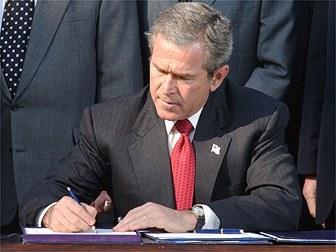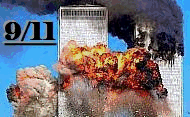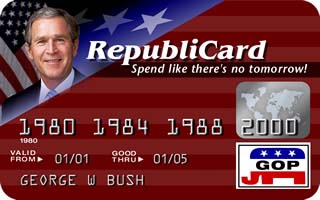 webradio
webradio (deutsch)
(deutsch) michael moore
michael moore  Mondlandungs Lüge
Mondlandungs Lüge (deutsch)
(deutsch)

 Tages-Anzeiger online
Tages-Anzeiger online

|
Sonntag, 1. Februar 2004
marcosolo, 1. Februar 2004 um 22:42:37 MEZThe Next 'Pentagon Papers' By Daniel Ellsberg, TomPaine.com January 28, 2004 After 17 months observing pacification efforts in Vietnam as a state department official, I laid eyes upon an unmistakable enemy for the first time on New Year's Day in 1967. I was walking point with three members of a company from the U.S. Army's 25th Division, moving through tall rice, the water over our ankles, when we heard firing close behind us. We spun around, ready to fire. I saw a boy of about 15, wearing nothing but ragged black shorts, crouching and firing an AK-47 at the troops behind us. I could see two others, heads just above the top of the rice, firing as well. They had lain there, letting us four pass so as to get a better shot at the main body of troops. We couldn't fire at them, because we would have been firing into our own platoon. But a lot of its fire came back right at us. Dropping to the ground, I watched this kid firing away for 10 seconds, till he disappeared with his buddies into the rice. After a minute the platoon ceased fire in our direction and we got up and moved on. About an hour later, the same thing happened again; this time I only saw a glimpse of a black jersey through the rice. I was very impressed, not only by their tactics but by their performance. One thing was clear: these were local boys. They had the advantage of knowing every ditch and dyke, every tree and blade of rice and piece of cover, like it was their own backyard. Because it was their backyard. No doubt (I thought later) that was why they had the nerve to pop up in the midst of a reinforced battalion and fire away with American troops on all sides. They thought they were shooting at trespassers, occupiers, that they had a right to be there and we didn't. This would have been a good moment to ask myself if they were wrong, and if we had a good enough reason to be in their backyard to be fired at. Later that afternoon, I turned to the radio man, a wiry African-American kid who looked too thin to be lugging his 75-pound radio, and asked: "By any chance, do you ever feel like the redcoats?" Without missing a beat he said, in a drawl: "I've been thinking that ... all ... day." You couldn't miss the comparison if you'd gone to grade school in America. Foreign troops far from home, wearing helmets and uniforms and carrying heavy equipment, getting shot at every half-hour by non-uniformed irregulars near their own homes, blending into the local population after each attack. I can't help but remember that afternoon as I read about U.S. and British patrols meeting rockets and mines without warning in the cities of Iraq. As we faced ambush after ambush in the countryside, we passed villagers who could have told us we were about to be attacked. Why didn't they? First, there was a good chance their friends and family members were the ones doing the attacking. Second, we were widely seen by the local population not as allies or protectors - as we preferred to imagine - but as foreign occupiers. Helping us would have been seen as collaboration, unpatriotic. Third, they knew that to collaborate was to be in danger from the resistance, and that the foreigners' ability to protect them was negligible. There could not be a more exact parallel between this situation and Iraq. Our troops in Iraq keep walking into attacks in the course of patrols apparently designed to provide "security" for civilians who, mysteriously, do not appear the slightest bit inclined to warn us of these attacks. This situation - as in Vietnam - is a harbinger of endless bloodletting. I believe American and British soldiers will be dying, and killing, in that country as long as they remain there. As more and more U.S. and British families lose loved ones in Iraq - killed while ostensibly protecting a population that does not appear to want them there - they will begin to ask: "How did we get into this mess, and why are we still in it?" And the answers they find will be disturbingly similar to those the American public found for Vietnam. I served three U.S. presidents - Kennedy, Johnson and Nixon - who lied repeatedly and blatantly about our reasons for entering Vietnam, and the risks in our staying there. For the past year, I have found myself in the horrifying position of watching history repeat itself. I believe that George Bush and Tony Blair lied - and continue to lie - as blatantly about their reasons for entering Iraq and the prospects for the invasion and occupation as the presidents I served did about Vietnam. By the time I released to the press in 1971 what became known as the Pentagon Papers - 7,000 pages of top-secret documents demonstrating that virtually everything four American presidents had told the public about our involvement in Vietnam was false - I had known that pattern as an insider for years, and I knew that a fifth president, Richard Nixon, was following in their footsteps. In the fall of 2002, I hoped that officials in Washington and London who knew that our countries were being lied into an illegal, bloody war and occupation would consider doing what I wish I had done in 1964 or 1965, years before I did, before the bombs started to fall: expose these lies, with documents. I can only admire the more timely, courageous action of Katherine Gun, the GCHQ translator who risked her career and freedom to expose an illegal plan to win official and public support for an illegal war, before that war had started. Her revelation of a classified document urging British intelligence to help the United States bug the phones of all the members of the U.N. security council to manipulate their votes on the war may have been critical in denying the invasion a false cloak of legitimacy. That did not prevent the aggression, but it was reasonable for her to hope that her country would not choose to act as an outlaw, thereby saving lives. She did what she could, in time for it to make a difference, as indeed others should have done, and still can. I have no doubt that there are thousands of pages of documents in safes in London and Washington right now - the Pentagon Papers of Iraq - whose unauthorized revelation would drastically alter the public discourse on whether we should continue sending our children to die in Iraq. That's clear from what has already come out through unauthorized disclosures from many anonymous sources and from officials and former officials such as David Kelly and U.S. ambassador Joseph Wilson, who revealed the falsity of reports that Iraq had pursued uranium from Niger, which President Bush none the less cited as endorsed by British intelligence in his state of the union address before the war. Both Downing Street and the White House organized covert pressure to punish these leakers and to deter others, in Dr. Kelly's case with tragic results. Those who reveal documents on the scale necessary to return foreign policy to democratic control risk prosecution and prison sentences, as Katherine Gun is now facing. I faced 12 felony counts and a possible sentence of 115 years; the charges were dismissed when it was discovered that White House actions aimed at stopping further revelations of administration lying had included criminal actions against me. Exposing governmental lies carries a heavy personal risk, even in our democracies. But that risk can be worthwhile when a war's-worth of lives is at stake. Daniel Ellsberg is the author of "Secrets: a Memoir of Vietnam and the Pentagon Papers." This piece originally appeared in The Guardian on Jan. 27, 2004. ... Link marcosolo, 1. Februar 2004 um 12:44:43 MEZ Apologies to Saddam Saturday January 31, 2004 The Guardian As Tony Blair grins like a Cheshire cat, and Alastair Campbell jubilantly rounds on his critics (Scalps satisfy Blair, January 30), may I remind them that David Kelly is still dead and many will find their manner distasteful? Robin Hardy-King Folkestone, Kent Where can I pick up my "Hands off the BBC" badge? JM Carthy London Can Saddam Hussein now expect to receive an unreserved apology for the very grave allegations made against him, if it turns out that there never were any WMD? Tim Morley Hathern, Leics There were two things I was proud of in Britain: our almost free universities and the BBC. This government has shown its contempt for both of these in just one week. Where now to look for national pride - Morris dancers? Jane Harris London Lest we lose perspective: no one at the BBC - not even John Simpson - has ever led the nation into an unjustified war. Penelope Schenk Oxford So Mr Blair now has his own TV and radio stations: just like that nice Mr Berlusconi. Peter Moore Newent, Glos In the light of Hutton, is it not now clear that cases which are likely to be long and complicated should be tried without a judge, rather than without a jury? Fr Martin Lawrence Romford, Essex Obviously we need an inquiry into the Hutton inquiry. Sara Neill Tunbridge Wells, Kent Obviously the most important fact of the Kelly case, was it really suicide was never asked by the Hutton inquiry. The murder of David Kelly part 1 The murder of David Kelly part2marcosolo Switzerland ... Link marcosolo, 1. Februar 2004 um 00:28:36 MEZ Bush überzieht US-Konto - remember Swissair Dem Präsidenten sitzt das "Scheckbuch" locker: Die Verteidigungsausgaben belaufen sich in dem Entwurf für 2005 auf 401 Milliarden US-Dollar. 
Washington - Die US-Regierung rechnet im Wahljahr mit einem weitaus größeren Defizit als bisher bekannt: Nach Angaben eines ranghohen Mitarbeiters der US-Regierung sieht der Budgetplan, den das Weiße Haus am Montag öffentlich vorstellen wird, für das Haushaltsjahr 2004 ein Defizit von 521 Milliarden Dollar (rund 417,9 Milliarden Euro) vor. In einem am vergangenen Montag vorgelegten Bericht war der Kongress noch von einem Minus von 477 Milliarden Dollar ausgegangen. Gleichzeitig will US-Präsident George W. Bush, der im Wahljahr wegen der explodierenden Neuverschuldung unter Druck steht, den Haushaltsentwurf 2005 vorstellen. "Kampf gegen den Terrorismus" Der Regierungsmitarbeiter, der die Angaben zum neuen Rekorddefizit 2004 machte, wollte ungenannt bleiben. Der Sprecher der Haushaltsabteilung des US-Präsidialamtes, Chad Kolton, teilte seinerseits mit, Bush werde für 2005 einen Budgetentwurf präsentieren, der "das Wirtschaftswachstum ankurbeln wird". Mit dem Haushaltsplan würden nationale Aufgaben wie der "Kampf gegen den Terrorismus" und der "Heimatschutz" finanziert. Im Jahr 2005 soll das Defizit nach Kongressangaben auf 362 Milliarden Dollar sinken. Das Weiße Haus strebt Kolton zufolge zudem eine Halbierung des Defizits in den nächsten fünf Jahren an. ms: Jetzt hat Bush wohl einen neuen creative accountant gefunden, der ihm eine ähnliche Bilanzierungsmethode wie seinerzeit bei Enron und Worldcom angewendet wurde, empfohlen hat. Wie soll denn das bitte mit den momentanen Entwicklungen vereinbart werden? Kann mir jemand wenigstens eine einzige Prophezeiung unserer Pleitegeier vom weissen Haus aufzählen, die nachher eingetrofen ist? Keinem Unternehmen in Nachlassstundung, und das ist die Regierung der Vereinigten Staaten bereits, würde auf privater Basis solch ein Budget von seinen Gläubigern je abgenommen werden. Leider haben aber die Bürger gegenüber dem Staat die schlechteren Karten als ihre Gesinnungsgenossen in der Privatwirtschaft. Haushaltsüberschuss von Clinton übernommen Als Bush im Jahr 2001 seine Präsidentschaft antrat, übernahm er einen Haushaltsüberschuss von 237 Milliarden Dollar vom damaligen demokratischen Präsidenten Bill Clinton. Die Finanzanalystin Veronique de Rugy vom konservativen Cato Institute sagte am Samstag, das neue Rekorddefizit demonstriere, dass der Bush-Regierung "Fiskalpolitik egal ist". Trotz aller Beteuerungen würde das Weiße Haus weiterhin Schulden machen. Dean: Bushs Kreditkarte zerschneiden
Der demokratische Präsidentschaftsbewerber Howard Dean aus Vermont sagte vor einigen Tagen, die Kreditkarte von George W. Bush müsse "zerschnitten" werden. "Die Rechnungen, die er anhäuft, gehen zu Lasten unserer Kinder und Enkel", sagte Dean. "Wir sind es ihnen schuldig, dieser fiskalischen Rücksichtslosigkeit ein Ende zu machen." ms: Bravo Mr. Dean, das ist genau die Lösung, die ich vorher angesprochen habe. Eine Grossbank würde dem Amerikanischen Staat bereits die Mittel zur weiteren Verschuldung entzogen haben und einen Konkursverwalter eingesetzt haben. Mehr Geld für Raketenabwehr Zusätzliche Mittel für die Raketenabwehr sieht unterdessen der Entwurf für den US-Haushalt 2005 vor. Nach am Freitag auf der Pentagon-Website veröffentlichten Zahlen sind dafür 9,1 Milliarden Dollar (7,4 Milliarden Euro) vorgesehen. Damit sind für die Raketenabwehr Mehrausgaben von 20 Prozent im Vergleich zum Haushalt 2004 geplant. Die Verteidigungsausgaben belaufen sich in dem Entwurf auf 401 Milliarden US-Dollar. ms: Stoppt Bush solange ihr noch könnt. Woher hatte übrigens Hitler seinerzeit das viele Geld her, dass es gebraucht hat, um diesen irrsinnigen Krieg zu führen? Ausser von IG-Farben und Thyssen war da noch der Grossvater von unserem derzeiten Konkursiten George W. Bush, sein Grossvater Prescot Bush. Dieser half finanziell am drittkräftigsten mit, dass es für Hitler überhaupt möglich wurde, seine Aufrüstung und Propaganda zu diesem unwürdigen Diktatorstaat zu finanzieren. Soll er doch einmal sein Familienerbe ein bisschen anzapfen um die bisher ungestrafte Aktion seines Clans zurückzuzahlen. ... Link you were looking at my daily reports: |
online for 8609 Days
last updated: 15.12.12, 03:58  Youre not logged in ... Login
   |

View My Guestbook
Sign My Guestbook




marcosolo's 
|
marcosolo  webradio statistics webradio statistics |
Nord- Motorrad-trips in Nord Thailand Motorrad-trips in Nord Thailand
|












